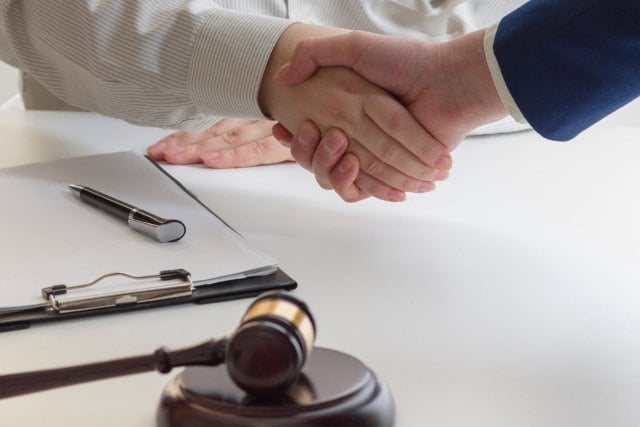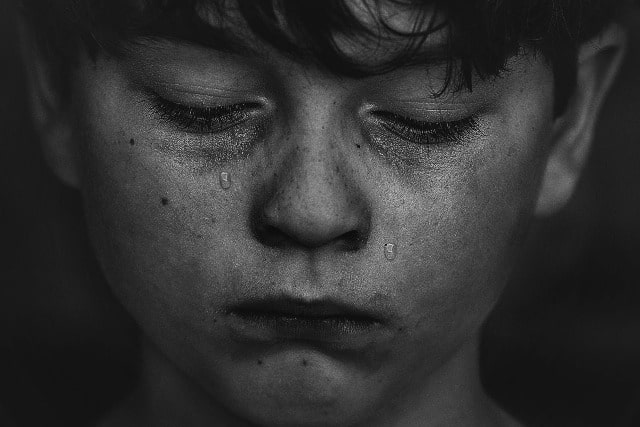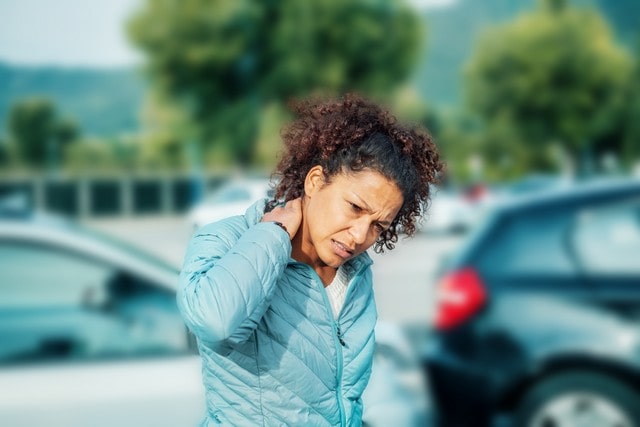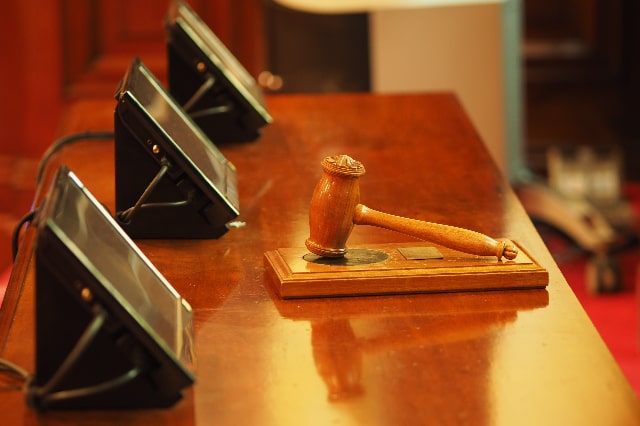Trusted criminal defense lawyer
Learn how Conoscienti and Ledbetter can assist you in pursuing a claim for loss of enjoyment of life, exploring eligibility, evidence, and the types of injuries that may warrant such a lawsuit.
 Author: J. Blake Ledbetter, Partner, Conoscienti & Ledbetter
Author: J. Blake Ledbetter, Partner, Conoscienti & Ledbetter
Mr. Ledbetter specializes in civil litigation in metropolitan Atlanta, Georgia, and possesses vast experience in wrongful death lawsuits. Mr. Ledbetter was recognized as a SuperLawyers Rising Star in 2018 and 2019 in the area of Civil Litigation. Published on June 10, 2024.

Speak with experienced criminal defense lawyer today, for free.
Can we assign a value to the joy of life in legal terms? Consider the everyday pleasures you enjoy, suddenly taken away by a regrettable event. This is not due to your mistakes but someone else’s carelessness or deliberate actions. This is not only about physical harm; it also looks at the unseen damages that affect every part of your life, changing your story unexpectedly. Although physical injuries may recover, a crucial question persists: can you be financially compensated for losing the invaluable aspects of life?
With the complexities inherent in personal injury cases, the legal system recognizes the profound impact that a diminished capacity to enjoy life has on an individual. Amid the nuances of legal proceedings, there surfaces a beacon of hope: the prospect of suing for the loss of enjoyment of life. But how does one navigate this labyrinth and emerge with a semblance of justice? That’s where the experience of seasoned legal professionals like our team at Conoscienti and Ledbetter, proficient in personal injury law, becomes invaluable.
This concept might seem abstract, but it is crucial in legal considerations. As you ponder your next steps, understand that while no two cases are alike, the precedence set by countless others who’ve walked this path offers a torch to light the way.
Understanding Loss Of Enjoyment Of Life
As legal professionals, we recognize that loss of enjoyment of life is a pivotal and often pursued claim in personal injury cases. It addresses the negative changes individuals endure daily following an injury.
Loss of enjoyment of life refers to the diminished ability to engage in and derive pleasure from everyday activities and life’s pleasures after an accident. Studies show that the emotional and psychological impacts can range from profound sadness and loneliness due to social isolation to severe mental health issues like chronic depression or anxiety. People may also suffer from cognitive impairments that can add to the sense of lost enjoyment.
Types Of Injuries Associated With Loss Of Enjoyment Of Life
The types of injuries that can significantly lead to a loss of enjoyment of life often include, but are not limited to:
- Catastrophic injuries: These severe injuries, including traumatic brain injuries (TBIs) and spinal cord injuries, can drastically alter one’s life, leading to paralysis, severe burns, disfigurement, and scarring. For example, research indicates that even mild traumatic brain injuries can result in emotional symptoms, insomnia, and pain interference, which in turn impact life satisfaction. This diminished enjoyment of life can persist for up to a year post-injury, highlighting the importance of ongoing monitoring and treatment.
- Permanent disabilities: These impairments are lasting and result in a person’s inability to perform activities they once enjoyed.
- Physical injuries: This includes broken bones, soft tissue injuries, and any harm that limits mobility or causes chronic pain.
- Psychological trauma: Events causing severe emotional distress that manifest in psychological conditions affect one’s ability to enjoy life.
In personal injury law, the impact on daily activities, suffering, and diminished quality of life collectively underscore the need for adequate compensation for victims. More so, understanding How To Prove Negligence in a Personal Injury Claim can help build a solid case.

Speak with trusted criminal defense lawyer today, for free.
Legal Criteria For Claiming Loss Of Enjoyment
We aim to elucidate the legal benchmarks one must meet to establish a viable claim for loss of enjoyment of life in a court of law. Loss of enjoyment of life is acknowledged in personal injury law as non-economic damage. To establish a claim, legal requirements related to negligence must be satisfied, including:
- Duty of Care: Establishing the defendant had an obligation to act or refrain from acting in a way that could cause harm. For instance, in Georgia, according to GA Code § 51-12-6 (2020), damages for mental pain and anguish can be awarded when a legal right or duty is violated, as such a violation constitutes an actionable wrong.
- Breach of Duty: This duty must be breached through action or inaction.
- Causation: Linking the injury suffered to the defendant’s breach of duty is pivotal; it must be demonstrated that the breach directly caused the injury.
- Damages: The plaintiff must have sustained actual damages, non-economic or otherwise, due to the injury.
Remember that statutes of limitations also apply and differ by state, setting a deadline for filing a claim. For instance, Georgia enforces a two-year statute of limitations for personal injury claims, as outlined in GA Code § 9-3-33 (2020).
Proving Loss Of Enjoyment Of Life In Court
When moving to court, proving loss of enjoyment requires comprehensive documentation to paint a clear picture for the jury or judge. Critical evidence may include:
- Medical Records: Corroborate the severity and consequences of your injuries.
- Expert Testimony: Corroborates how your injuries affect your quality of life.
- Witness Statements: The injured party may also include friends or family about how your life has changed post-injury.
- Personal Testimony: Provide a personal account of your experiences and suffering.
The valuation of these losses often involves illustrating how the injuries have impinge upon daily activities, hobbies, and one’s capacity to earn wages, known as lost wages.
Evidence substantiates compensation’s pain and suffering component, which encapsulates loss of enjoyment. It requires thorough proof, often demanding the synthesis of medical expenses and the intangible detriments to one’s life enjoyment. The assessment of such damages falls on the jury during a trial, and the strength and validity of the evidence presented must persuade them.
How to Calculate Loss of Enjoyment of Life
Calculating the loss of enjoyment of life is complex and often subjective, as it involves evaluating the intangible aspects of a person’s life that have been diminished due to an injury. Typically, this calculation is part of non-economic damages and requires a thorough understanding of the impact the injury has on the plaintiff’s daily activities, hobbies, and overall life satisfaction.
Courts and insurance companies usually consider several factors, including the severity of the injury, the age of the plaintiff, their life expectancy, and the extent to which their life has changed post-injury. For instance, if someone who was an avid runner can no longer participate in marathons due to their injury, this loss would significantly contribute to the calculation.
One common method used is the “multiplier method,” where the actual economic damages (like medical expenses and lost wages) are multiplied by a number typically ranging from 1.5 to 5, depending on the severity of the injury. However, the exact figure is often influenced by the persuasiveness of the evidence presented, such as testimonies from family members, medical experts, and psychological evaluations.
It’s important to note that these damages are awarded at the discretion of the court, and amounts can vary widely. As each case is unique, working with an experienced personal injury attorney is crucial to ensuring that all aspects of loss are thoroughly evaluated and adequately compensated.
How Conoscienti And Ledbetter Can Help
Securing skilled legal representation from a Personal Injury Lawyer is imperative when facing a personal injury case related to loss of enjoyment of life. At Conoscienti & Ledbetter, we understand the nuances of personal injury law and are dedicated to advocating for our clients’ rights to fair compensation. Our approach to these cases is strategic and compassionate, ensuring each client feels heard and supported.
Initially, our team offers a free consultation to evaluate the specifics of your situation. During this meeting, we listen to your story, assess the impact of your injuries, and discuss how they have affected your life. This step is crucial in determining the course of your potential personal injury lawsuit or settlement discussion.
We prioritize clear and regular communication with our clients throughout the legal process. Our commitment is to build a compelling case on your behalf, focusing on:
- Establishing the responsible party’s duty of care and any breach that occurred
- Demonstrating causation between the breach and your injury
- Quantifying the extent of your loss of enjoyment of life
Our attorneys, backed by 40+ years of combined experience, are well-versed in negotiating with insurance companies and, if necessary, presenting your case in court. We are fierce advocates for our clients, tirelessly working to achieve a resolution reflecting the full extent of your losses.
We aim to guide you toward a resolution that helps restore your quality of life, whether through settlement or court proceedings.

Don’t delay. Schedule a risk-free consultation today.
Take the First Step Toward Justice with Conoscienti & Ledbetter
In exploring the intricacies of compensation for loss of enjoyment of life, we’ve navigated complex legal terrain. It becomes clear that while no amount of money can truly compensate for the joys lost due to another’s negligence, the legal system does recognize this profound impact and offers a form of redress.
Loss of enjoyment of life, categorized under general damages, acknowledges the significant ways serious injuries can impede one’s capacity to relish life’s offerings, from everyday pleasures to landmark experiences. Although these damages are inherently subjective, they remain vital to personal injury law.
At Conoscienti and Ledbetter, we are versed in the subtleties of these claims. Each case presents unique challenges and demands tailored scrutiny. We encourage any individual grappling with these issues to reach out. A skilled personal injury attorney on our team can offer a personalized evaluation of your situation, ensuring your story—and your personal injury claim for loss of enjoyment of life—is given the careful consideration it deserves.
Decatur Office
(404) 373-5800
315 W Ponce de Leon Ave. Suite 400 Decatur, GA 30030







